Featured
Obasanjo: An honour of Iconic Global Leadership, Peace Making Legacy At National Daily Awards
Published
3 years agoon
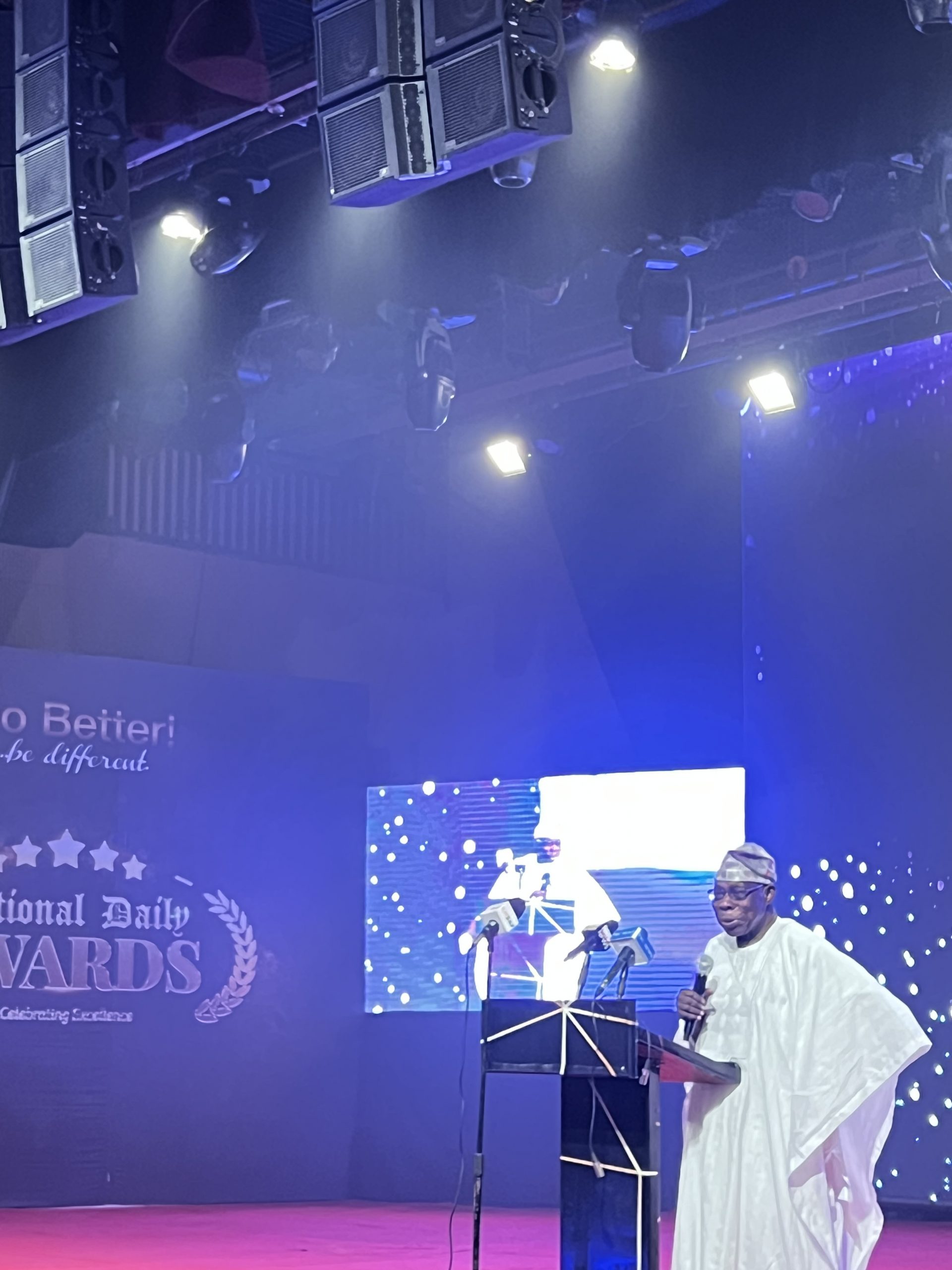
Former President Olusegun Obasanjo, recipient of the National Daily Global Leadership and Peace ICON Award, has served Nigeria as a military Head of State, and two-tenure of eight years civilian President. The former President spent his military career working for the unity of Nigeria, including leading troops to fight the Biafra civil war, as well as leading the Biafran Generals to surrender to the Nigerian Military Government at the end of the war, led by General Yakubu Gowon.
Since retirement from the military service, Dr. Olusegun Obasanjo GCFR has been playing unique roles in promoting justice, equity, liberal democracy, good governance, qualitative leadership, peacebuilding, conflict mediation, and resolution, in Nigeria and across the continent of Africa.
As Head of State from 1976 to 1979, Obasanjo supervised a smooth transition to a civilian regime in 1979, before retiring from the Nigerian Army.
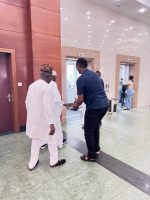
While he was Head of State, Obasanjo in May 1976, launched Operation Feed the Nation, a project to revitalize small-scale farming, a process students are paid to farm during the holidays.
On education, Obasanjo introduced the Primary Education Act in 1976 to improve enrollment in free but voluntary primary schooling. Obasanjo, in May 1976, introduced free secondary education in technical subjects, which he extended to all secondary schooling in 1979–80.
To tame corruption in government in the 1970s, the Obasanjo administration banned the use of Mercedes cars by government officials and introduced the use of Peugeot 504 cars. He also banned the importation of Champaign.
In the international system, Obasanjo launched the Africa Leadership Forum from his Ota farm.
Obasanjo was a member of the Palme Commission from 1981 to 1982, chaired by the former Swedish Prime Minister, Olof Palme, which discussed disarmament and international security.
Obasanjo was also a member of some panels of the United Nations, the World Health Organization, and the Inter-Action Council of Former Heads of Government.
Obasanjo was considered a potential successor to Javier Pérez de Cuéllar, UN Secretary-General, during a period of
illness.
Obasanjo contested for the UN Secretary-General after Pérez de Cuéllar announced his resignation, but lost at the UN Security Council voting to Boutros Boutros Ghali of Egypt.
Obasanjo, on the recommendation of the Deputy Secretary-General of the Commonwealth, Emeka Anyaoku, co-chaired an Eminent Persons Group (EPG) of the Commonwealth of Nations with former Australian Prime Minister, Malcolm Fraser, to dialogue with the South African government for the dismantling of apartheid.
While Obasanjo and Fraser traveled to Cape Town, only Obasanjo was permitted to meet with Dr. Nelson Mandela who was then in prison.
Obasanjo also visited Angola twice in 1988 to facilitate an end to the civil war in the country.
He also visited Sudan three times between 1987 and 1989, to encourage negotiations to end the Second Sudan Civil War.
In further peace-building efforts, Obasanjo visited Burundi to calm tensions between the Hutu and Tutsi ethnic groups.
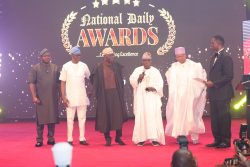
Obasanjo was appointed Special Envoy by UN Secretary-General Ban Ki-Moon to the war-torn Democratic Republic of the Congo where he held separate meetings with DRC former President Joseph Kabila and rebel leader Laurent Nkunda.
Elected Executive President of the country in 1999, Obasanjo showed immense commitment to rebuilding Nigeria, and restoring the country as the leading economy on the African continent.
Dr. Obasanjo had a prison experience during the military government of General Sani Abacha for criticizing the military regime. He was brought out of prison in 1999 to become the President of Nigeria after the death of Abacha in 1998.
The former President in his first tenure from 1999 to 2003, negotiated and secured the writing off of Nigeria’s $30 billion foreign debt he inherited from the previous governments. Dr. Obasanjo persuaded the foreign debtors to write off $18 billion of the debt while the Nigerian Government paid off the balance of $12 billion to make Nigeria debt free.
Former President Obasanjo, in his wisdom, argued that funds for debt servicing were taking off enormous resources from the country’s budget for national development.
The former President also brought in investments into Nigeria’s telecommunications industry which today contributes significantly to the country’s GDP.
Former President Obasanjo handed over peacefully to a successor President in 2007. He left an indelible legacy of a President who erased Nigeria’s $30 billion foreign debt inherited from previous administrations, established the Economic and Financial Crimes Commission (EFCC), the ICPC to fight corruption in Nigeria, elevated Nigeria’s economy to the largest economy in Africa, established the National Open University to expand opportunities for university education to Nigerians, he brought the modern GSM phones to Nigeria, among others.
Leaving office in 2007, the former President enrolled in the National Open University of Nigeria where he successfully completed the Ph.D. programme in theology.
Former President Obasanjo has played several interventionist roles in conflict mediation, arbitration, and conciliation across African countries, and served on UN Missions on different occasions.
As an elder statesman, Dr. Obasanjo relentlessly engages in advocating for justice, and equity towards national integration in the country. Many uphold Obasanjo as a reformer, visionary leader, and defender of democracy in Nigeria, and Africa.
Obasanjo mediated peace talks between the Ethiopian government and the Tigray Peoples Liberation Front on the mandate of the African Union, and secured a ceasefire agreement on the Tigray War on November 2, 2022. This was widely celebrated by world leaders.
Former President Obasanjo has also intervened in conflicts in Mozambique, Namibia, Sierra Leone, Liberia, Sao Tome and Principe, and the Republic of Togo.
He was appointed UN Secretary-General’s Special Envoy on the Great Lakes region in 2008.
He served as ECOWAS’ Special Envoy to the Ivory Coast, head of AU electoral observation delegations.
Dr. Obasanjo currently occupies the position of the African Union High Representative for the Horn of Africa, wherein he has been the voice of the continent in the international system.
Former President Olusegun Obasanjo was conferred the National Daily’s Global Leadership and Peace ICON Award at the Oriental Hotel, Victoria Island, Lagos, where he also delivered the keynote speech.
You may like
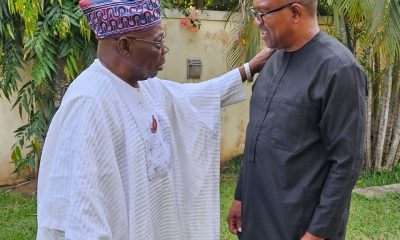

Obi pays New Year homage to Obasanjo
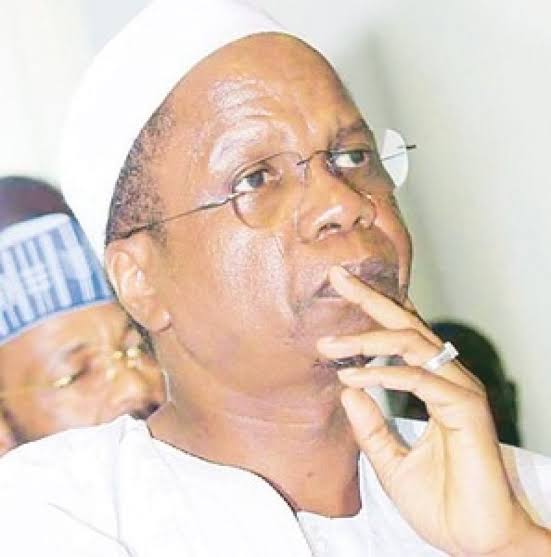

One word on super bureaucrat Yayale Ahmed @ 70 years
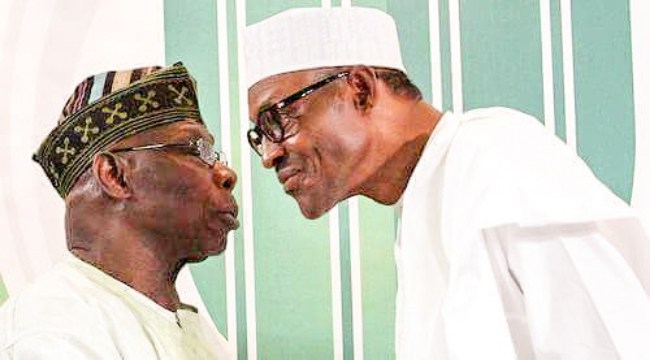

“Expecting more from Buhari is like beating dead horse” – Olusegun Obasanjo
People should get suspicious when OBJ, IBB speak – Soyinka


Obasanjo opens up on role in FESTAC ‘77


14% interest rate will stifle economic development, says Obasanjo
Trending

 Health1 week ago
Health1 week agoRacketeering allegations trail claims of vaccine profit cycle
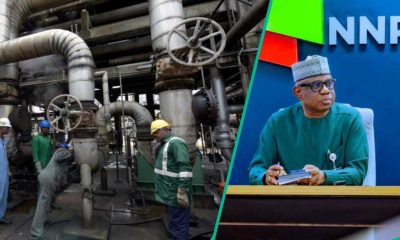
 Business1 week ago
Business1 week agoNNPC explores Chinese partnership to revive Nigeria’s state-owned refineries

 Business7 days ago
Business7 days agoNaira gains against Euro as strong reserves, trade surplus bolster currency outlook

 Health6 days ago
Health6 days agoSinger’s death sparks doctor’s takedown of snakebite myths, exposes public health gaps

 Latest7 days ago
Latest7 days agoAPC reshuffles convention committee, drops Uzodinma as Chairman, appoints Masari

 Football6 days ago
Football6 days agoBarcelona moves to secure Rashford permanently, target Romero
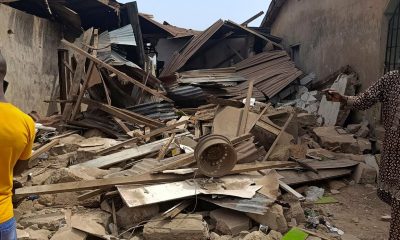
 Crime1 week ago
Crime1 week agoKwara massacre: Village chief blames military for delayed response

 Latest7 days ago
Latest7 days agoPDP leadership crisis deepens as Turaki-led NWC faults INEC over meeting with Wike-aligned faction

